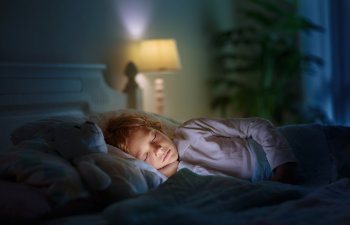Hearing the sound of your child grinding their teeth at night can be concerning, especially if it happens frequently. This common condition, known as bruxism, affects many children and can sometimes lead to dental or health issues. But how do you know when nighttime teeth grinding is something to worry about?
At West Hill Family Dental, we specialize in providing comprehensive care for children, including addressing issues like teeth grinding. In this blog, we’ll help you understand the causes of bruxism, when it’s a problem, and what steps you can take to protect your child’s dental health.
What Is Nighttime Teeth Grinding (Bruxism)?
Bruxism is the medical term for the involuntary grinding or clenching of teeth. It can occur during the day or at night while a child is sleeping. Nighttime bruxism is more common in children and can be linked to a variety of factors, including stress, anxiety, or even the eruption of new teeth.
According to the American Academy of Sleep Medicine (AASM), nearly 15-33% of children experience nighttime bruxism at some point. For many kids, this habit is temporary and resolves on its own. However, in some cases, teeth grinding can cause dental damage, jaw pain, or even disrupt sleep.
Why Do Children Grind Their Teeth?
There’s no single cause of teeth grinding in children, but several factors can contribute to the condition. Common reasons include:
- Stress or anxiety: Children may grind their teeth in response to emotional stress or anxiety, such as changes in routine, school pressures, or family events.
- Teething or growing pains: The discomfort of new teeth erupting or misaligned teeth may trigger bruxism in young children.
- Hyperactivity: Kids with higher levels of energy or those diagnosed with Attention Deficit Hyperactivity Disorder (ADHD) are more likely to grind their teeth during sleep.
- Sleep disturbances: Teeth grinding can be associated with sleep apnea or other sleep-related issues, making it important to monitor for any snoring or irregular breathing patterns.
When To Be Concerned About Nighttime Teeth Grinding?
While occasional teeth grinding is generally not a cause for alarm, there are times when it’s important to seek advice from a dental professional. Here are some signs that bruxism may be causing problems:
1. Visible Tooth Damage
If your child’s teeth appear worn down, chipped, or cracked, it’s time to see a dentist. Persistent grinding can wear down the enamel, leading to sensitivity and increasing the risk of cavities.
2. Jaw Pain or Headaches
Children who grind their teeth often wake up with jaw pain, headaches, or discomfort around the ears. This pain is a sign that the muscles of the jaw are being overworked during sleep, which can lead to more serious problems if not addressed.
3. Disturbed Sleep
Bruxism can disrupt your child’s sleep patterns, leading to fatigue and irritability during the day. If your child frequently wakes up tired or complains of trouble sleeping, teeth grinding may be a contributing factor.
4. Complaints of Tooth Sensitivity
Teeth grinding can make the teeth more sensitive to hot or cold foods and drinks. If your child complains about sensitivity, it’s worth discussing the possibility of bruxism with your dentist.
How to Address Teeth Grinding in Children
At West Hill Family Dental, we offer specialized pediatric dental care to help manage bruxism in children. Here are some of the ways we can address this condition:
1. Customized Nightguards
For children who grind their teeth frequently, customized nightguards can be a highly effective solution. These appliances, worn during sleep, act as a protective barrier between the upper and lower teeth, preventing damage and alleviating discomfort.
2. Behavioral Therapy
In cases where teeth grinding is linked to stress or anxiety, behavioral therapy may help. Teaching your child relaxation techniques or implementing a calming bedtime routine can reduce anxiety and minimize nighttime grinding.
3. Dental Monitoring
Regular dental check-ups allow us to closely monitor your child’s oral health and catch any signs of wear or damage early. We may also recommend orthodontic evaluations if misaligned teeth are contributing to the problem.
4. Addressing Underlying Conditions
If bruxism is linked to a sleep disorder such as sleep apnea, treating the underlying condition can reduce or eliminate teeth grinding. In such cases, we may refer you to a pediatric sleep specialist.
Why Choose West Hill Family Dental for Pediatric Dental Care?
At West Hill Family Dental, we take a gentle, family-friendly approach to dental care for kids. Our experienced team understands the unique challenges of childhood dental issues, including teeth grinding, and we’re here to help your child maintain a healthy smile as they grow.
Our team at West Hill Family Dental are committed to providing the best possible care for children of all ages, using advanced techniques to ensure their comfort and safety.
When in Doubt, Talk to Your Dentist
If your child is grinding their teeth at night and you’re concerned about the impact on their dental health, don’t hesitate to seek advice. Contact West Hill Family Dental today to schedule an appointment and learn how we can help protect your child’s smile.
